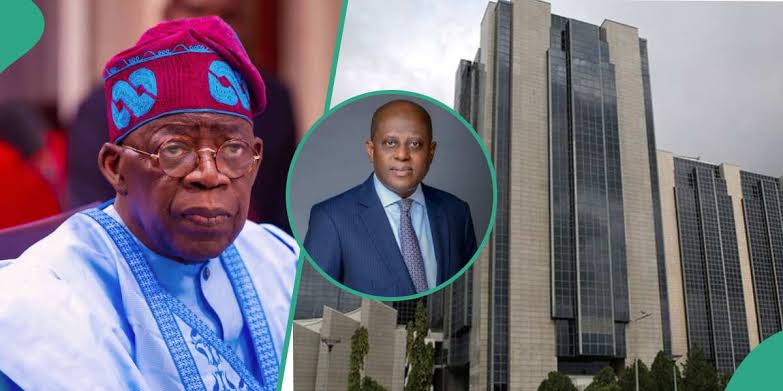By Prince Justice Faloye
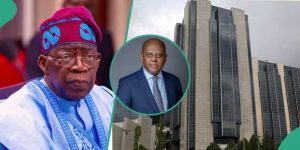
President Tinubu’s choice of Yemi Cardoso as the Central Bank governor fails one of the most vital requirements for economic recovery. Investor confidence is inspired in environments that can’t be easily influenced away from clear policy directions by politicians for their selfish electoral benefit. Therefore responsible governments that are growth oriented make sure that they chose an independent Central Bank governor to give investors confidence that economic and financial decisions will be based on sound principles, not political and personal expediency.
Non-partisan Economists had already argued that following Emefiele’s woeful term as Central Governor, the only way to regain investor confidence to rebuild our economy, was if a new party was voted in that could guarantee CBN independence. A good example is that of the 1990s British economy whereby Prime Minister Margaret Thatcher politicization of monetary policy, lost investor confidence that couldn’t be regained with a party leadership change to John Major. Not until Tony Blairs Labour Party took over, even with similar neo-liberal policies, did British investor confidence return.
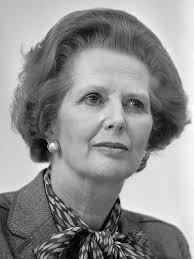
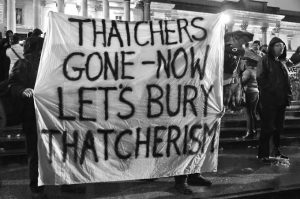
This total change was not to be in Nigeria. Instead, a politics of continuity with the Central Bank under another APC regime that had made the previous CBN Governor Emefiele a lapdog of Buhari and the likes of Funtua, which resulted in unnecessarily provoking the greatest divestment since the Civil War, and ended it’s 8yr term with a political motivated currency change to effect the outcome of an election, and in doing so destroyed businesses with cash illiquidity. There was hope in some quarters that maybe Tinubu will be more responsible and let the CBN be independent to make sound monetary and economic policies. However, Cardoso is closer to Tinubu and bound to have monetary policy unduly influenced by politics probably more than what transpired during Emefiele and Buhari 8yr ruinous regime.
Is the choice of Yemi Cardoso as CBN governor based on his academic background that can’t be compared to any of the previous three CBN governors like Soludo, Sanusi nor even Emefiele? He is not a qualified Economist nor monetarist, but earned only a managerial and administrative degree. If his academic qualifications fall short of what is required for a CBN governor, one would have hoped that his experience would compensate the lack of skillset. However, as a Lagos State Commissioner of Economic planning and budget, his economic planning was flawed with no policy direction towards industrialization to change Lagos neocolonial economy, while the budget implementation was low, as monies up to hundreds of billions were budgeted but never fulfilled or accounted for.
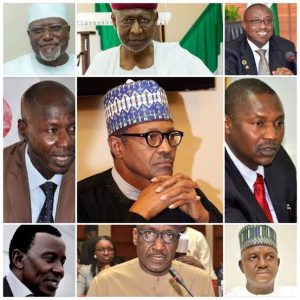
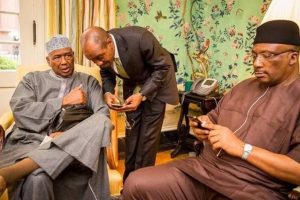
The truth is Cardoso is part of Tinubu’s team that have engaged in economic propaganda to cover up the arrested economic development of Lagos for 24yrs. Cardoso was not choosen to bring good monetary policies to repair and stabilize the Nigerian economy, but to paper over the cracks with policies like redenomination to hide the great Naira devaluation, just like with their new disingenuous way of calculating unemployment to hide the true state of unemployment and poverty, turning the above 33% unemployment rate to under 10% overnight. In Yoruba, it could be called Aluki when you beat someone and leave no marks. Absolute economic policy insincerity and callousness that will only turn poor Nigerians into walking dead!
One of the reasons an independent CBN governor is required is control of money supply based on sound financial decisions, not political manipulation. Tinubu has made public statements in the recent past advocating printing money not backed by real value, to plug budgetary shortfalls, showing he belongs to the Idi Amin School of monetary economic thought, which won’t be rejected by his boy Yemi Cardoso. Unfortunately, neither Yemi Cardoso nor Wale Edun, the finance minister are grounded in intellectual economic arguments about the value of money, so they can’t take principled stands against printing more money which would lead to galloping inflation, further fall in Naira and economic stagnation!
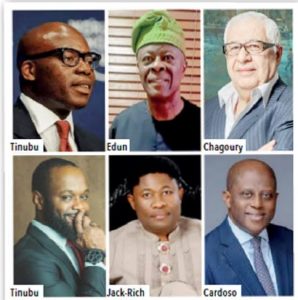
Another issue is Cardoso flagship policy of renumeration, which was a good policy advocated by the African Union towards a single African currency over a decade ago, but is now wrongly timed and implemented by Tinubu’s government. Redenomination at this point in time is self deprecating because Naira is at it lowest, artificially, due to Buhari intentional devaluation to widen the gap between officlal and Black market rate for corrupt roundtripping and profiteering by his cabal, and Tinubu’s 100 days of economic disaster. How do you convert your stocks at the lowest value?
Just as fuel subsidy removal and unifying forex rates were potentially good policies technically, but the Tinubu government made the worse out them, so is Cardoso renumeration policy heading for the worst. Worse than allowing Naira free fall in false hope that it will close the gap, despite one rate having 43 restrictions and the other none. Worse than the removal of fuel subsidies without alternative power sources or transport like railway, whereby the removal of fuel subsidies that was a mere 2% of our economy is resulting in over minus 20% negative multiplier effects across the economy, exponentially decreasing productivity and increasing poverty.

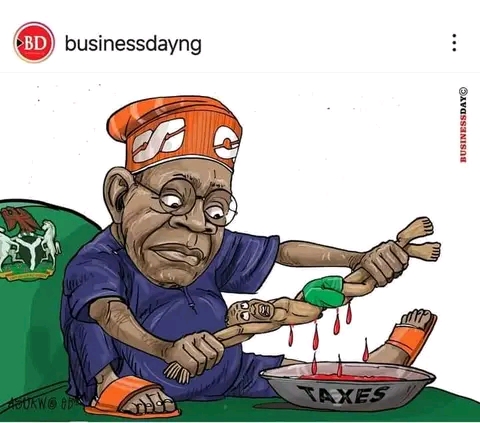
Giving out bags of rice to replace fuel subsidies makes you wonder whether the people were drinking the fuel or using it especially in the informal sector for production of goods and service. This means the government disregards or ignorant of the fact that energy sources are essential to domestic production and not stomach infrastructure. His economic tokenism was obvious to all when to stop a planned NLC strike, he promised an increase of N25,000 for just six months for civil servants that accounted for less than 3% of the employed while informal sectors workers that account for 90% of employed were left out.
Redenomination under this regime is tantamount to burying the Nigeria economy alive, because when 1000 naira becomes 10 naira, further devaluation will be faster but hidden. Another example of the Aluki approach on the masses. It is easier for the new redenominated N1 to a dollar fall to N2 than it falling from N1000 to N2000. The percentage rate of change when N0.894 (N1.70 BM) in 1985, to $1 to N8 (N9.30) in 1991 and to N17.30(N21.90) in 1993 was 2000% devaluation in 8yrs, compared to the last 8yrs when forex was deliberately and treasonously devalued but only fell from N199(N300) to N700(N1000) which is about 300%. The simple reason is larger absolute numbers move slowly. This has also been witnessed in Ghana and other nations that have redenominated their currencies several years ago. Don’t get me wrong, even if redenomination has its advantages you don’t change when your currency is artificially low, on a downward trend and unstable.

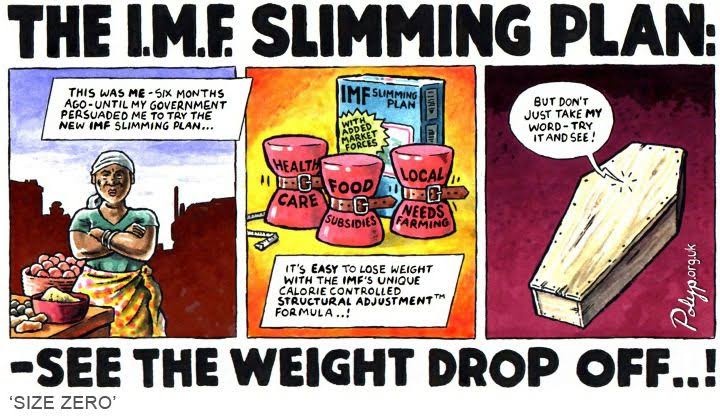
It is a fallacy that it would reduce inflation because with a falling Naira, the speculators psychological input that makes it fall faster in low figures will not be transmuted to wage increases, thereby the masses and investors will be the greatest losers. A price increase from N1 to N2 won’t be as obvious as an increase from N1,000 to N2000. The only positive effects will be superifical and used for propaganda purposes. Instead of applying sound policies to stabilize the Naira, the Tinubu is merely concerned with the optics for show.
The Naira will continue to fall because the government is not focused on changing the fundamentals of the Nigeria economy from light processing industries of food, beverages and tobacco to heavy industries of railways, automobiles, electronic etc. Neither is there improved fiscal integrity and budgetary discipline as it was reported that the largest road project in Nigerian history has been awarded without a transparent and open bidding process to HITECH believed to be owned by President Tinubu and Chagoury. Moreover, it is a misplaced priority of Lagos-Calabar coastal road instead of Lagos-Calabar railways, while the East-West road on the same route is yet to be completed in a decade. We live in interesting times!

